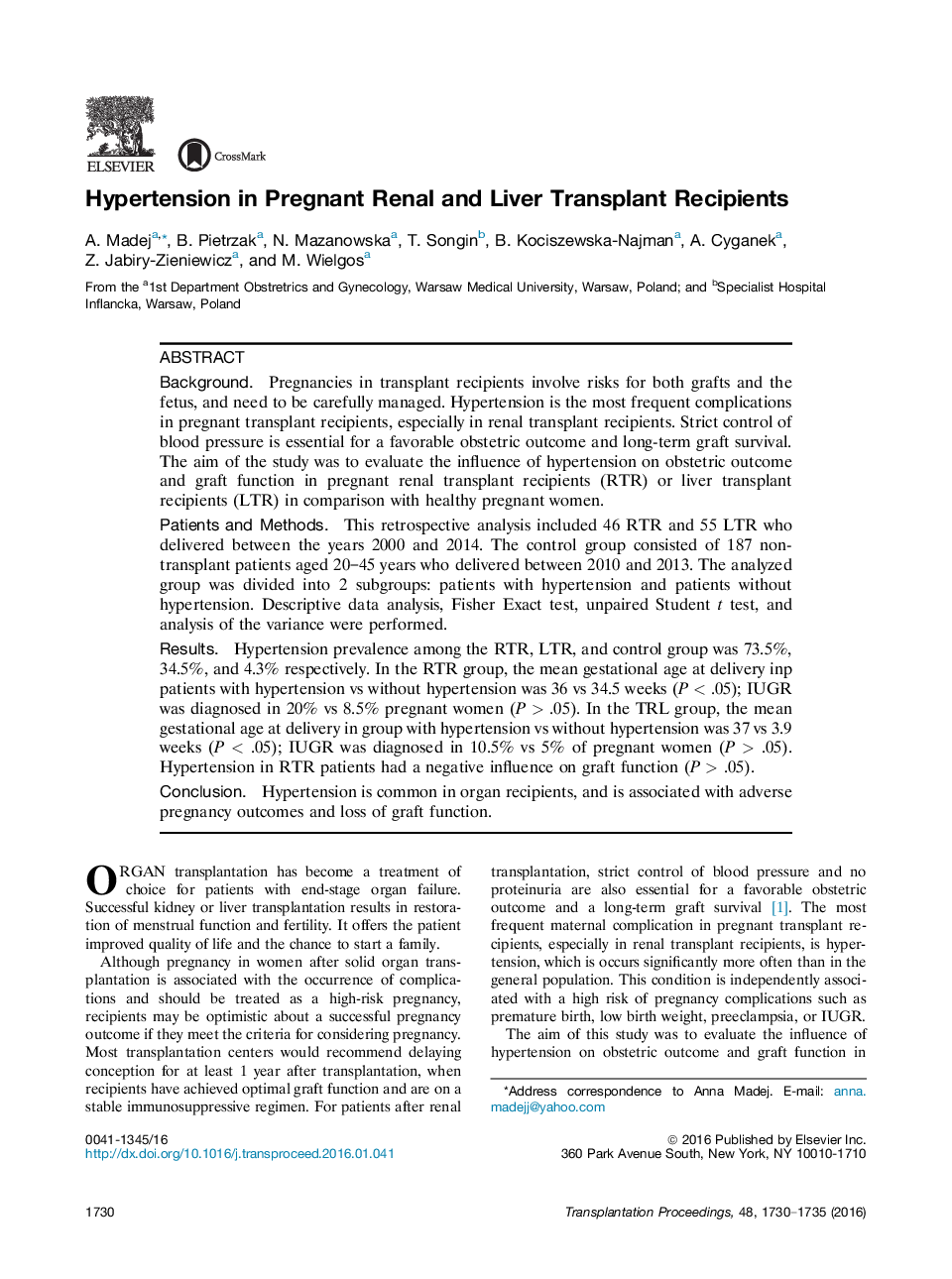| Article ID | Journal | Published Year | Pages | File Type |
|---|---|---|---|---|
| 4256108 | Transplantation Proceedings | 2016 | 6 Pages |
•The most frequent maternal complication in pregnant transplant recipients, especially in renal transplant recipients, is hypertension.•Hypertension is independently associated with a high risk of pregnancy complications such as premature birth, low birth weight, preeclampsia, and IUGR.•Hypertension in patients after renal transplantation has a negative influence on graft function.
BackgroundPregnancies in transplant recipients involve risks for both grafts and the fetus, and need to be carefully managed. Hypertension is the most frequent complications in pregnant transplant recipients, especially in renal transplant recipients. Strict control of blood pressure is essential for a favorable obstetric outcome and long-term graft survival. The aim of the study was to evaluate the influence of hypertension on obstetric outcome and graft function in pregnant renal transplant recipients (RTR) or liver transplant recipients (LTR) in comparison with healthy pregnant women.Patients and MethodsThis retrospective analysis included 46 RTR and 55 LTR who delivered between the years 2000 and 2014. The control group consisted of 187 nontransplant patients aged 20–45 years who delivered between 2010 and 2013. The analyzed group was divided into 2 subgroups: patients with hypertension and patients without hypertension. Descriptive data analysis, Fisher Exact test, unpaired Student t test, and analysis of the variance were performed.ResultsHypertension prevalence among the RTR, LTR, and control group was 73.5%, 34.5%, and 4.3% respectively. In the RTR group, the mean gestational age at delivery inp patients with hypertension vs without hypertension was 36 vs 34.5 weeks (P < .05); IUGR was diagnosed in 20% vs 8.5% pregnant women (P > .05). In the TRL group, the mean gestational age at delivery in group with hypertension vs without hypertension was 37 vs 3.9 weeks (P < .05); IUGR was diagnosed in 10.5% vs 5% of pregnant women (P > .05). Hypertension in RTR patients had a negative influence on graft function (P > .05).ConclusionHypertension is common in organ recipients, and is associated with adverse pregnancy outcomes and loss of graft function.
